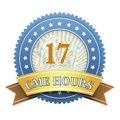
Greg Whyte
Professor of Applied Sport & Exercise Science
Liverpool John Moores University
UK
Biography
An Olympian, ‘physical activity guru’ and world-renowned sports scientist, Greg is a Professor in Applied Sport & Exercise Science at Liverpool John Moores University and a UK authority on Exercise Physiology, Sports Performance & Rehabilitation which includes having extensive professional experience assessing, treating & improving the performance of athletes & sporting enthusiasts ranging from celebrities attempting their first mountain summit to Gold medal seeking Olympians. A former modern pentathlete, Greg competed in two Olympic Games and has won European bronze and World Championship silver medals. After his athletic career he studied for his BSc (Hons) at Brunel University, completed his MSc in human performance at Frostburg State University in the USA and completed his PhD at St. Georges Hospital Medical School and the University of Wolverhampton, where he was research co-ordinator. Greg is a Fellow of the British Association of Sport and Exercise Science (FBASES) and the American College of Sports Medicine (FACSM) and was the Chairman of the charity Cardiac Risk in the Young (CRY) from 1999-2009. As one of the preeminent sport and exercise scientists nationally and internationally, Greg has worked as consultant physiologist in a large number of Olympic and professional sports. Prior to his appointment at Liverpool John Moores University, Greg has been the Director of Science and Research at the English Institute of Sport (EIS; 2004-2006), and the Director of Research for the British Olympic Association based at the Olympic Medical Institute (2001-2004).
Research Interest
Applied Sport & Exercise Science

